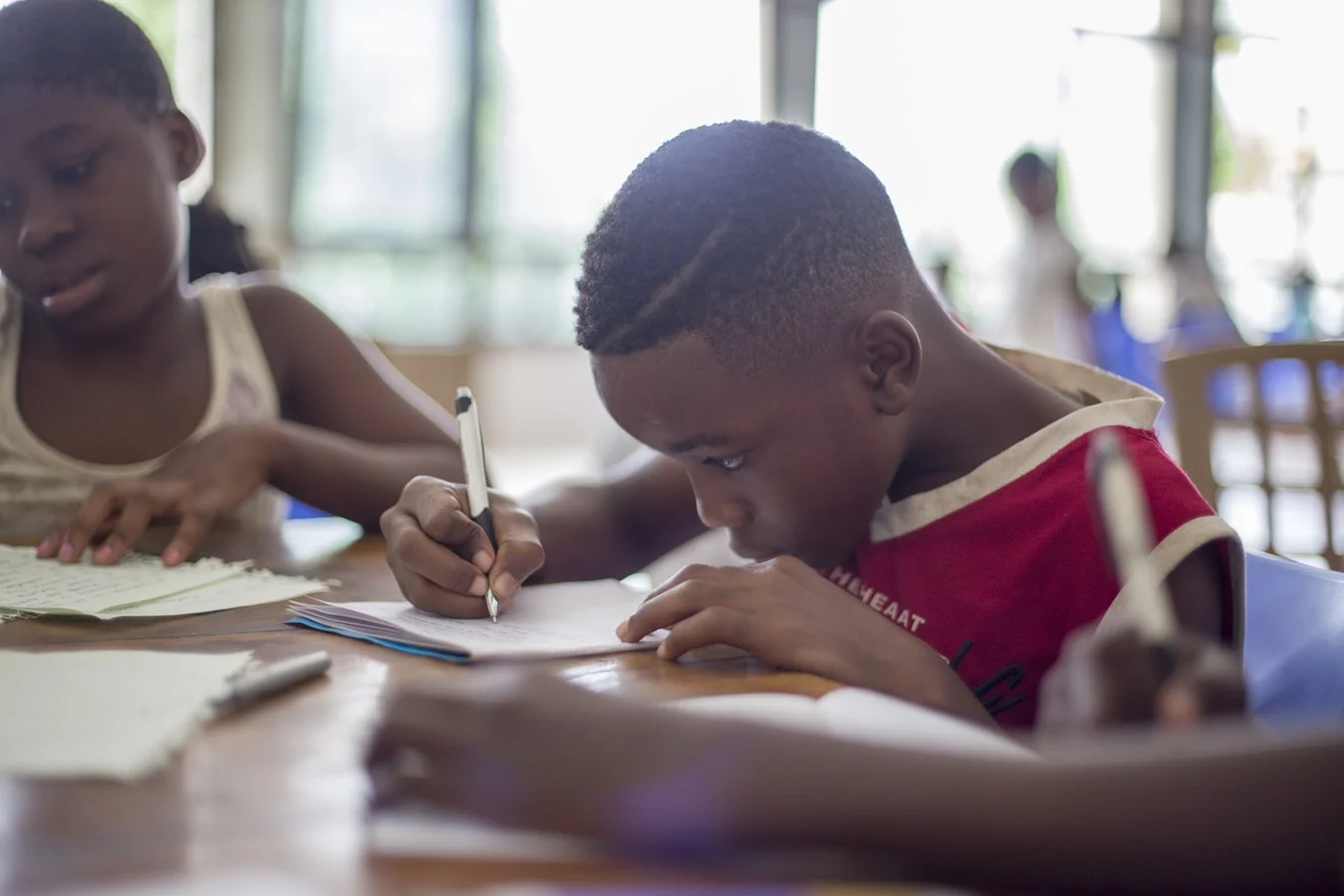In Part I of Should You Make Your Kid Apologize, I looked at what it means as adults when we apologize. I took the time for that discussion to help parents realize the implications of when and why we apologize. Yes, I do think it is important that we teach children to apologize, but we have to go beyond a hollow apology by supporting our kids’ emotional growth.
Read MoreAre you concerned that you are a helicopter or lawn mower parent? Do you know that you are one but don’t know what to do differently? One of my favorite techniques for giving our kids some space and encouraging some independent thinking is What’s your plan for that? Instead of mapping out how our child should tackle a homework assignment or chore or even a conflict with a friend, we give the problem to them for consideration. Of course, if they are floundering too much, we step in and help with some course correction (but resist the urge to take over!)
Read MoreOnce the shine of the new school year wears off, it is time to settle into the routine of school. Here are steps for helping your child figure out how to handle the homework the teacher’s give her. Aid her in problem solving but recognize that if you tell your child how and when to do her homework, chances are it won’t work. At this stage, it is more important to help her develop her own tools for managing her work.
Read MoreTHAT CHILD IS A BULLY!
Have you ever written off a child in your neighborhood or at your child's school as a bully? It is easy as parents for us to get defensive and judgmental. Bullying sets parents off and strikes a very sensitive chord, but lots of what we fear is bullying is normal interactions among kids—they just need the skills and the example to use it.
Read MoreAs there is more and more artificial intelligence (AI) in the world, there is more need than ever for little humans to learn Emotional Intelligence. Play is a tremendous vehicle for one’s own and others’ emotions. Being able to relate emotionally allows kids to function in school more effectively and therefore to be more ready for learning.
Read MoreAll parents want their kids to be smart. To support their children’s development they have enrolled their kids in more and more extra curricular activities. The irony is that these activities take up kids’ play time, and parents are grossly undervaluing the benefit of play to children’s cognitive development. You might be surprised by some of the ways that play builds both perception and critical thinking skills.
Read MoreTeasing out what are the effects of child care--especially long term--on children is no easy task and, yet, is understandably one that has an enormous effect not only on our own children but also on society as a whole. The truth is, researchers don't really know whether or how much childcare might be hurting us. Here are my ideas.
Read MoreWhen most people think of grit, they think of “when the going gets tough, the tough get going.” While that is an example of grit, most grit is of the less dramatic kind—the kind which allows a person to keep trying in the face of obstacles large and small.
Setting out to develop grit in your child sounds a bit draconian, but you do want your child to develop the kind of persistence that will allow her to pursue things even when the pursuing feels hard or not worth it. The best way to do this is to help your child see herself as being in process and to see challenges as something to go around rather than as something to stop you in your tracks.
GET 3 TIPS FOR HOW TO DEVELOP GRIT IN YOUR CHILD.
Read MoreYou've Got the ABC's Covered and the 123's Down. But Increasingly, research shows the importance of Emotional Intelligence--and you are the person best suited to teaching it.
Emotional intelligence is being able to recognize a wide range of nuanced emotions, and recognizing them, being able to regulate them and put them in perspective in a way that helps the individual move through life more easily.
In my long experience in working with children, emotional intelligence can absolutely be developed. The most important way in which it is developed is through interactions with thoughtful adults who are modeling and guiding kids in dealing with their feelings.
This blog shares some common behaviors of parents whose kids display emotional intelligence.
AND IF YOU ARE CURIOUS ABOUT HOW TO BOOST YOUR OWN EQ, CHECK OUT THIS BLOG ON "How can we use NLP to build Emotional Intelligence?"
Read More11 teen suicides in 9 years. In one community. In my community.
How does that happen? Your first answer might be to blame the parents. Where were they? Didn't they know they were putting too much pressure on their son? Why didn't they do something?
But it's not that simple.
Sure, it is your job to protect your children? But are you being too over protective? And if you are, what is the cost of that to both your younger kids and to teens? And what can you do about being overprotective?
Read MoreEven many adults don't learn the skill of having difficult conversations effectively. Most people just want everyone else to be happy. Certainly, no one modeled for me how to stay present even when conversations got uncomfortable. It was so much easier to just give up or give in. Now, of course, there are times when going with the flow is the name of the game, but if you want your kids to learn the balance between keeping the peace and learning to advocate for themselves in a constructive way, they are going to learn that much sooner if you teach it to them explicitly.
Read MoreMost parents understand and are comfortable with this when it comes to safety. Your two year old may want to climb the wobbly ladder by himself but you know that the risk is too great, so you offer a compromise--she may climb it with you hanging on to him tightly or she may climb her toy slide by herself. He may not use the big knife to cut onions but he may use the plastic knife to cut bananas or to spread butter.
Read MoreThere are many reasons to give kids chores (To see a comprehensive list, go HERE. Kids like to feel needed and capable. Chores help with both. When parents set up chores as “In our family we help each other,” kids see their work as being an important part of being a member of the family. Plus, kids like knowing they are able to do things on their own. They like being able to know that they were the one who made the living room sparkle or who saw to it that every family member had a sandwich ready to take in his lunch. When all the family members are contributing, it frees up time for family fun, and parents are less stressed. Parents have to get themselves ready for work. If the kids are making lunch for everyone while Mom and Dad are getting breakfast on the table, families end up having a few minutes to sit down and start the day together.
Read MoreWhat are some bad sleep habits elementary school, tweens and teens have?
•Having their phones in their rooms with them. Yes, a smart phone makes a good alarm, but not if kids are texting and checking social media all night, so better to get your child a conventional alarm clock.
•Going fully speed ahead right up until bed time. People need wind down time. Just as when they were babies or toddlers, kids should have a routine that calms and soothes.
•Varying their bedtimes by a lot. While the occasional late night can’t be avoided, sleep experts agree going to bed at around the same time every night is helpful.
•Trying to make up for lost sleep during the week by sleeping until noon on Saturday.
Read MoreHow did we get to where we are today?
The trend for highly supervised playdates grew over a lot of years, and there are some reasons that even if they change back, they won’t ever be quite the same.
Read MoreThis blog is in response to a letter a mom sent me about her son:
Dear Elisabeth,
I am so angry and mortified. My 10-year-old got caught shop lifting, and I am afraid this is a sign of much worse things to come.
Upset and Worried in Tulsa
Read More"Show me a child who
knows nothing about sexuality,
and you've just introduced me
to my next victim."
Read More(In addition to being an author on parenting, Hogan is putting together an awesome in-person conference for parents in August 2017. Called the United We Parent Conference, it will take place in Southern California and will include great speakers (like me!) and breakout groups for parents to share their insights and issues.)
Read MorePeople often ask me, what consequence should I give my child for situation X.
There is no one right answer for that because each family is different, but here are some guidelines:
Logical consequences should
•be related to the problem
•be age appropriate
•allow a child his/her dignity
And most importantly, you HAVE to be able to follow through with them or you are back at square one, so it has to work for your family and for that particular child (fair is not equal).
Read More




















